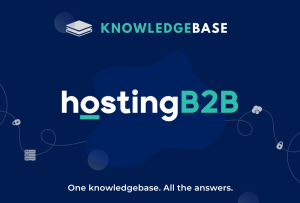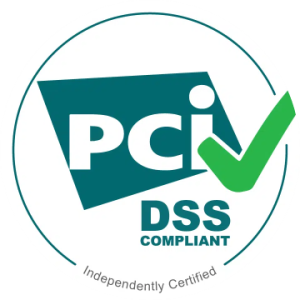


In the digital era, businesses rely heavily on data and technology. Therefore, disasters—whether natural or man-made—can profoundly impact IT infrastructure. Disaster recovery (DR) plans are crucial for mitigating these risks and ensuring business continuity. HostingB2B, a leader in hosting and cloud services, partners with Acronis, a top data protection solution, to offer comprehensive disaster recovery services. This article discusses the importance of disaster recovery and how HostingB2B and Acronis provide robust protection and swift recovery.
Understanding Disaster Recovery
Disaster recovery involves policies and procedures to recover technology infrastructure and systems after a disaster. This includes natural disasters, cyber-attacks, hardware failures, and human errors. The main goal of DR is to minimize downtime and data loss, ensuring critical business functions resume quickly.
Key Components of a Disaster Recovery Plan
- Risk Assessment and Business Impact Analysis (BIA): These initial steps identify potential threats to the organization and their impact on business operations. Understanding these risks helps businesses prioritize recovery efforts and focus resources on critical systems and data.
- Recovery Time Objective (RTO) and Recovery Point Objective (RPO):
- RTO defines the maximum acceptable downtime for business processes. This metric helps determine how quickly systems must be restored.
- RPO indicates the maximum acceptable amount of data loss measured in time. This metric guides the frequency of data backups.
- Data Backup and Recovery Solutions: Regular data backups are vital for disaster recovery. HostingB2B uses Acronis’s advanced technologies for reliable, regular backups, ensuring data can be restored quickly.
- Disaster Recovery Sites: A disaster recovery site supports business operations if the primary site becomes unusable. HostingB2B offers flexible options, including cloud-based recovery solutions facilitated by Acronis, eliminating the need for physical recovery sites and providing rapid failover capabilities.
- Communication Plan: Effective communication is crucial during a disaster. A well-defined plan ensures stakeholders, including employees, customers, and partners, are informed about the recovery efforts.
- Regular Testing and Updates: To ensure the disaster recovery plan is effective, it must be regularly tested and updated. This includes conducting drills and simulations to identify potential weaknesses and refine recovery strategies.
HostingB2B and Acronis: A Partnership for Enhanced Disaster Recovery
HostingB2B has partnered with Acronis, a global leader in data protection and cybersecurity, to offer state-of-the-art disaster recovery services. This collaboration combines HostingB2B’s expertise in hosting and cloud solutions with Acronis’s advanced technologies, providing businesses with a robust and comprehensive disaster recovery framework.
Why Acronis?
- Comprehensive Data Protection: Acronis offers a unified platform integrating backup, disaster recovery, and cybersecurity. This holistic approach covers all aspects of data protection, providing a seamless recovery process.
- Advanced Backup Technology: Acronis uses image-based backup technology, allowing complete system backups, including operating systems, applications, and data. This ensures businesses can restore systems to a precise point in time, minimizing downtime and data loss.
- Cloud-Based Solutions: Acronis’s cloud-based disaster recovery solutions offer scalable and flexible options for businesses of all sizes. This eliminates the need for costly physical infrastructure and enables rapid recovery, with data stored securely in the cloud.
- Integrated Cybersecurity: Acronis provides integrated cybersecurity features, such as anti-ransomware and antivirus protection. This ensures that backups are not only recoverable but also secure from cyber threats.
- Ease of Use: The Acronis platform is user-friendly, with an intuitive interface that simplifies the management of backup and recovery processes. This ease of use is crucial for businesses that may not have extensive in-house IT resources.
Best Practices for Implementing Disaster Recovery with HostingB2B and Acronis
- Establish Clear Recovery Objectives: Set clear RTO and RPO metrics based on your business needs. These objectives guide the design of your disaster recovery plan, ensuring your recovery efforts align with your operational requirements.
- Regular Testing and Validation: Use the testing features provided by HostinB2B and Acronis to conduct regular disaster recovery drills. This practice helps ensure that your backups are functional and your recovery processes are effective.
- Multi-Layered Protection: Leverage the integrated cybersecurity features of Acronis to protect your data from potential threats. This includes ensuring backups are free from malware and recovery processes are secure.
- Employee Training and Awareness: Ensure all relevant staff members are trained in the disaster recovery processes and understand their roles. Regular training sessions help prepare your team for an actual disaster scenario, enhancing the overall effectiveness of the plan.
Conclusion
In a world where data integrity and system availability are crucial for business operations, a robust disaster recovery plan is essential. HostingB2B, in partnership with Acronis, provides comprehensive disaster recovery solutions that ensure data protection, minimize downtime, and maintain business continuity. By leveraging advanced technologies and best practices, HostingB2B and Acronis help businesses navigate the complexities of disaster recovery, providing peace of mind and securing their digital assets against a range of threats. Whether facing natural disasters, cyber-attacks, or other disruptions, businesses can rely on HostingB2B’s disaster recovery services to safeguard their operations and data.
The post HostingB2B & Acronis: Reliable Disaster Recovery Solutions appeared first on HostingB2B.








